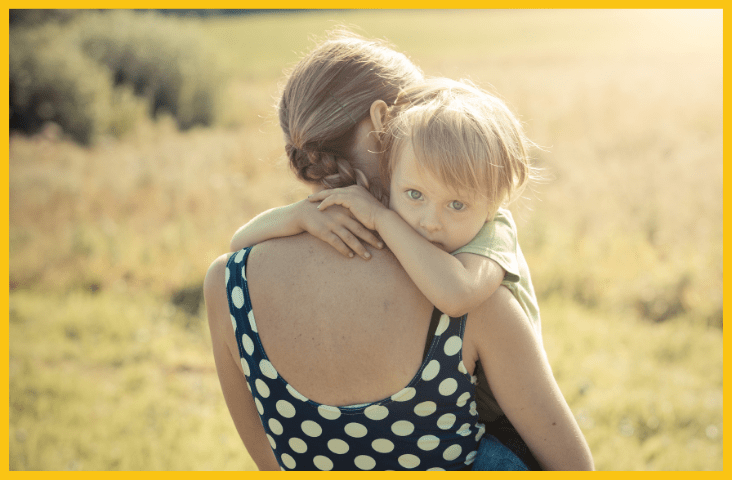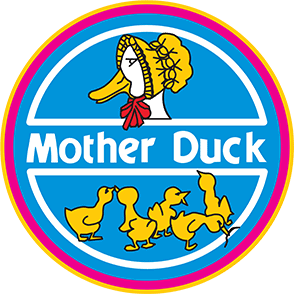
When Your Child Is Struggling To Separate From You
Some practical tips for parents:
It is important to understand that separating from a parent or guardian, especially for the first time, can be a stressful event for a child. At times, children will cry and grow upset. These feelings are valid and are often a release of a child’s concern of being separated from the person they know and love the most. As young children don’t often have the vocabulary to express their feelings, they will communicate their worry or sadness through crying (and for some children it may even involve screaming and wailing). As adults, because our child’s emotional outbursts or displays of sadness very much trigger our own “big feelings”, our initial instincts might look like the following:
- In attempts to get through the awful feeling of watching our children upset as quickly as possible, we might be quick just to push our child through their feelings. This might sound like- “You’re going to be fine!”, “It’s okay- don’t cry!”
- In attempts to calm our own emotions and to “logic ourselves” out of feeling sad or worried, we do the same with our children. This might sound like- “You don’t need to be scared. You have lots of friends at Kindy!” or, “There’s no need to cry! You have such a great teacher, you’ll be fine!”.
The problem with each of these responses is that they are both attempts to attend to our feelings as parents and the external behaviour of our child and they can unknowingly and unintentionally neglect to address the root cause of our child’s feelings.
Behaviour is communication.
Human behaviour (in this particular case, a child crying or screaming because they don’t want to leave the person they love the most) is communication. Perhaps the tears, the screaming, the clinging onto your legs (or perhaps even the behaviour that is throwing their Kindy bag into the bin or ripping up their homework) is saying, “This is really hard. I’m feeling scared and alone. I can’t do this. I need help to know that I am safe.”
If this is the “root cause” that is driving the behaviour, comments like “you’ll be fine” drive even more fear. Think of it from an adult’s perspective. You’ve had a really hard day at work and everything has gone wrong. You call your partner in tears because you just don’t think you can get through the day and their response is, “You’re okay. You’ll be fine! You’re tough!”. I don’t know about you, but in that moment even if the truth is that I AM tough and that I WILL be fine, that’s not how I feel. Those comments leave me feeling as though I should either be ashamed of how I feel or perhaps I need to “amp up” my communication because I am not being heard – right?

Resilience is not about ignoring feelings or shoving emotions down inside:
Comments such as, “You’ll be fine”, “You’re okay”, “You are tough” might be true, but it doesn’t mean in the throws of big emotions that these comments are helpful. In fact, responses like this don’t push children through their worries to be more resilient – they teach them to either continue to fight until someone pays attention and helps them feel safe or it teachers them to push their feelings down inside of them because they mustn’t be valid. As human beings, we are wired to connect with another human being when we are scared or sad. That desire for connection isn’t a weakness – it’s brain science and it’s crucial to our wellbeing as people.
Similarly, trying to appeal to the logic of the human brain when a child (or adult) is in the midst of really big emotions is also futile. Karen Young – Hey Sigmund explains why:
“When the body is in fight or flight, the thinking brain (the prefrontal cortex) shuts down. The prefrontal cortex is the part of the brain that can process rational information, think through consequences, learn, or plan a better way to do things next time. When it’s shut down, there is no way our children can learn anything.”
When the unexpected wave of anxiety of separation hits…
It is also not uncommon at different stages for children to seemingly “out of the blue” experience big emotions and separation anxiety as they experience different changes and developmental challenges. These strong emotions can come out at the time your child is separating from you, but children can sometimes grow upset at home just thinking about separating from you.
Although watching your child experience some distress can be quite concerning for families (this too is normal!), please be assured that these moments of heightened emotion can be an opportune time to really connect with your child as you explore their “big emotions” with them. Your child’s fears and worry about leaving you are certainly legitimate and as the most important person in their world, they will need continual reassurance from you and this will continue throughout their life as different challenges pop up.
Some practical tips to help you support your child through emotional moments:
- If your child does grow upset about leaving you, acknowledge that feeling in a calm and honest way and don’t try to “talk them out of it” as this will only make them feel worse. Validation is powerful and helps your child feel seen and understood, bringing a sense of calm and security.
Some helpful phrases may include: “I can see that you feel sad about leaving daddy/mummy. We all feel sad sometimes and that’s okay.”, “I know that your heart feels worried about going to Kindy. I get that it’s hard for you.”
Remember: big emotions provide you with an opportunity to truly connect with your child and to make space for honesty and connection throughout your child’s life.
- If your child consents, an extra dose of cuddles on the couch or snuggled up reading a book are very helpful for an anxious brain. Check out what Karen Young – Hey Sigmund has to say about that:
“When their world feels shaken, hold them, cuddle them, and sit with them as much as they need you to and as much as you can. Physical closeness, warmth, and touch release oxytocin. Oxytocin is the ‘bonding chemical’ and it’s released when we feel close to our important people. Here’s the magical part – the amygdala has receptors for oxytocin. When the amygdala receives a juicy dose of oxytocin, it will calm.”
- Try to refrain from saying comments such as “you will be fine!” – this isn’t helpful for your child and will only cause them to feel unheard (and let’s be honest, if our children are really upset, they don’t feel “fine”!). Rather, after you have validated your child’s feelings and they appear to be calm, try using phrases that communicate that you know they are safe. Your sense of safety and security as their trusted adult builds their sense of safety and security!
Some helpful phrases may include: “I trust your teachers and know you are safe”, “I know that your teachers will take good care of you”, “I will come back to get you when my work day is finished”.
Remember: ALWAYS validate feelings first!
We are here for you…
Lastly, if you have concerns and are experiencing some anxiety around your child settling into care, please be open with your child’s educators about your worries and concerns. Your well-being is important to us and your child and speaking about it can sometimes be enough to ease your concerns. If you feel safe with us, this will help your child feel more safe with us.
Please know that our skilled educators will also support your child’s emotional wellbeing while they spend their time with us, and as we all work together to meet your child’s needs, your child will grow and flourish!
Heidi Denner



